


Did you know that the real estate industry is on the brink of a revolutionary change that’s reshaping everything we know? Prepare yourself for the electrifying world of innovative real estate solutions.
In today's competitive market, understanding the latest tools is crucial. Discover why these innovations matter more than ever and how they could forever transform your business strategy. Stay tuned as we unveil the unexpected truths behind these game-changing technologies.
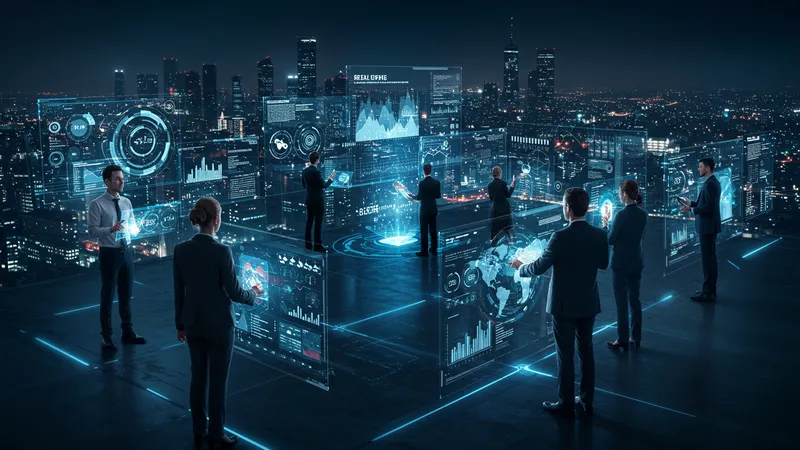
The concept of prefabricated buildings has been misunderstood for years, often dismissed as low-quality. However, these structures, optimized by cutting-edge technology, offer unmatched scalability and efficiency. Imagine slashing building times by 50% and reducing waste significantly—there’s more to this story than meets the eye. But that’s not even the wildest part…
On the other hand, customer management software is not just about storing contacts. These platforms integrate predictive analytics that can foresee customer needs, boosting satisfaction rates drastically. The potential to increase profitability by 20% is within reach. Curious about how it all works in synergy with new architectural innovations? What happens next shocked even the experts…
Prefabricated buildings are not just about speed. They provide an unprecedented level of energy efficiency that traditional construction cannot match. Thanks to precision manufacturing and sustainable materials, these buildings can reduce energy consumption by 30%. Yet, it's their potential for customization that really sets them apart. Unlike the cookie-cutter perception, some companies now offer tailored designs to meet specific aesthetic and functional needs. This completely shifts the narrative. But there’s one more twist…
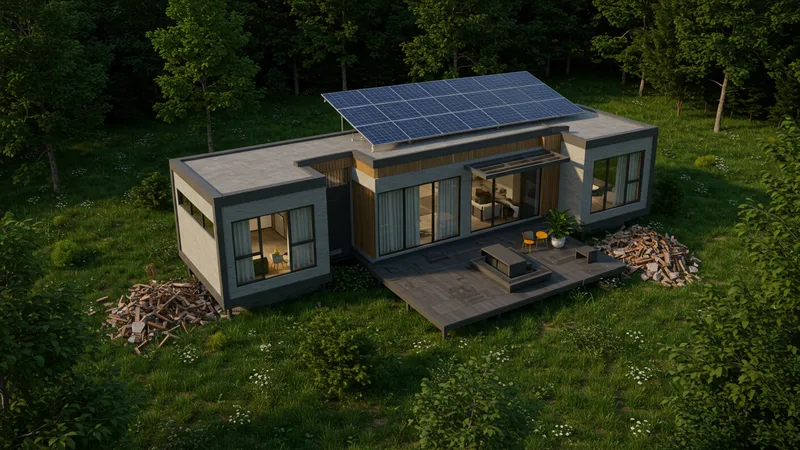
What makes prefab structures even more attractive is their environmental impact. Reduced construction waste is a significant advantage, with some projects cutting waste by as much as 75%. This eco-friendliness is appealing not only to developers but also to eco-conscious buyers looking for sustainable living solutions. The shift towards greener methods in real estate is not just a trend, but a movement gaining momentum. What you read next might change how you see this forever.
Cost-effectiveness is another factor that is hard to ignore. Prefabricated solutions significantly lower construction costs due to minimal labor and material expenses. Even unforeseen nuances like reduced site disruption and softer diplomatic negotiations with community boards play a crucial role. These savings make real estate projects not only viable faster but also open them up to a broader market segment. But there’s one more twist…
Interestingly, the adaptability of prefab buildings ensures they can handle more than just residential projects. From commercial spaces to educational institutions, their versatility is remarkable. Coupled with technological advancements in smart facilities, prefabricated multi-functional structures stand ready to cater to an evolving society's demands. But the synergy goes even deeper.
In the realm of customer management, software solutions have introduced an unprecedented level of sophistication. Platforms now provide seamless integration with virtual reality tours, offering potential buyers an immersive experience from the comfort of their home. This feature alone can reduce dropout rates by finer margins, leading to a smoother sales process. It’s a breakthrough in enhancing client engagement. But there’s one more twist…
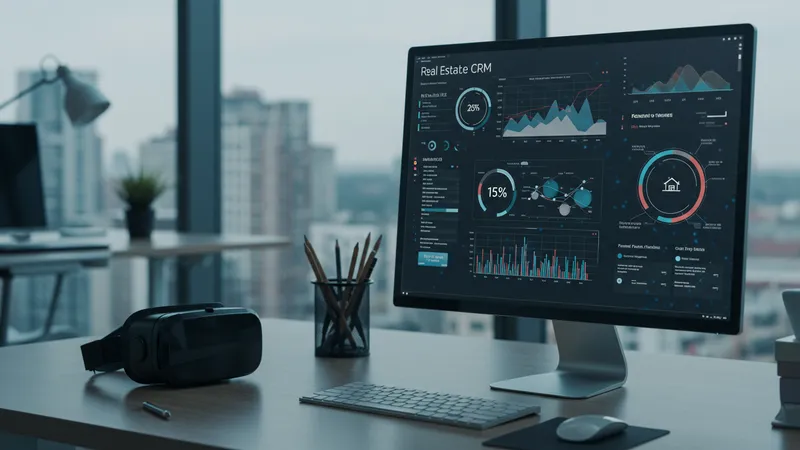
Predictive analytics in CRM systems are changing how real estate professionals interact with their clients. By analyzing browsing patterns and preferences, these tools can suggest properties that align with client desires even before they explicitly ask. This proactivity increases satisfaction rates and accelerates decision-making processes, both of which are invaluable in a competitive market. Yet there’s an unexpected element waiting in the wings.
Today's CRM platforms are far beyond mere databases. They are equipped with AI-driven insights into market trends and pricing strategies. This empowers agents to offer highly tailored advice, overcoming pricing uncertainties and negotiating challenges easily. It effectively turns raw data into potent strategies that drive sales. But this isn’t the end of the story…
A major aspect yet to be fully realized is the integration of CRM systems with Internet of Things (IoT) devices. Soon, agents will gather real-time data from showrooms or even clients' homes, providing invaluable insights for customizing offerings. This innovative integration holds the promise of revolutionizing how properties are marketed and sold. Get ready for a whole new level of interaction!
The appeal of prefabricated buildings doesn’t stop at structural frameworks. Modular interiors offer a new layer of innovation, emphasizing flexibility and personalization. Finished modules can be rearranged or upgraded without significant reconstruction, adapting to changing lifestyles or business needs. This versatility presents an untapped potential for homeowners and businesses alike. What you read next might change how you see this forever.

With modern modular interiors, there’s an ease of changing spatial dynamics that caters to evolving needs. If a family grows or a company expands, modular designs allow seamless reconfiguration without the burden of major renovation costs. It’s a dynamic shift from the notion of permanent structures, opening doors to sustainable growth and change. But there’s one more twist…
The emphasis on customizability doesn’t end there. Innovative designs are integrating sustainable materials and smart technologies, allowing for spaces that are not only eco-friendly but also intelligent. Automated systems that adjust lighting and temperature have become a standard option, enhancing comfort and reducing energy costs. This tech-integration is the future. But hold on—there’s more to discover.
Affordability is revolutionized with modular interiors. Bulk production and simplified logistics significantly reduce expenses while maintaining high standards of quality and durability. The economic benefits are appealing not just for developers but for end-users as well, making high-quality living or office spaces more accessible. But the journey doesn’t stop here, and further exploration reveals even more depth.
Smart building technologies are shaking up the construction sector by enhancing prefab structures with modern conveniences. Today’s buildings boast IoT-integrated systems that offer real-time data, from energy usage to occupancy levels. This technology greatly optimizes resource management while adding layers of security and convenience for occupants. But there’s more to it than meets the eye.
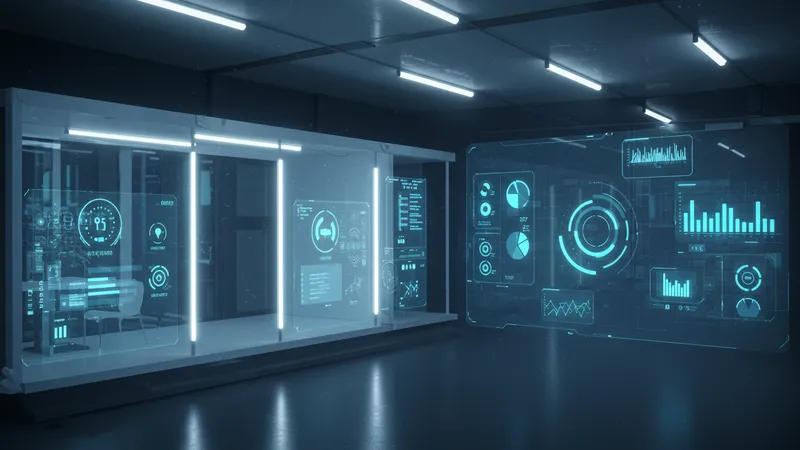
The automation of building operations has heralded a new era of efficiency. Systems that autonomously manage lighting, heating, and security based on user habits not only create a responsive living environment but significantly cut operational costs. The shift towards such interconnected spaces marks a leap in innovation. Still, it’s just the tip of the iceberg.
As technology progresses, smart building innovations are becoming more cost-effective, democratizing access to high-end solutions previously available only to premium structures. This includes intelligent elevator systems that predict peak usage times and smart grids that optimize energy distribution—factors that add unprecedented value to properties. But it doesn’t end there…
The future looks promising as smart tech continues to integrate with modular buildings, paving the way for adaptive structures that evolve with user preferences. Maintenance becomes predictive, preventing issues before they arise, and community systems enhance connectivity among residents. But there are still more surprises left to unfold in this ever-evolving landscape.
The real estate sector is evolving beyond traditional paradigms, partly due to the integration of tech and modular solutions. The market has seen an influx of tech-savvy buyers who demand futuristic living spaces equipped with modern amenities. This shift is prompting developers to innovate continuously, leveraging technology for smarter construction methods and user-centric designs. But what's happening next changes the game completely.
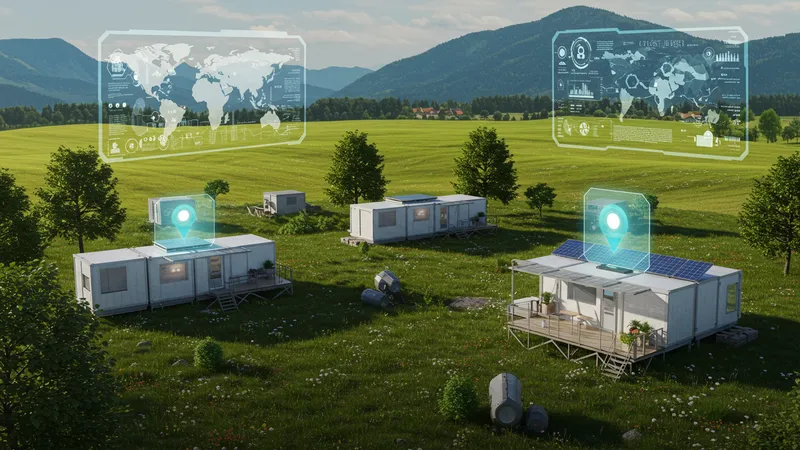
The movement towards decentralization is gaining traction. As remote work becomes mainstream, the demand for adapted living spaces and smart rural homes is increasing. Prefabricated, tech-enabled homes that can be easily transported and installed are set to redefine accessibility and location freedom. This upheaval could alter real estate strategies worldwide. But this isn't all...
Real-time adaptability of spaces is more than a trend—it's a necessity. The ability to modify interiors and functionalities on short notice or adjust for different purposes is leading to a new era of resilience in property management. This unprecedented flexibility enables tailored approaches for fluctuating demands. Yet, there's still more ground-breaking news.
On a macro scale, integrating real estate developments with sustainability and smart technology could impact urban planning significantly. Eco-friendly and intelligent infrastructures are pushing towards the creation of smart cities, emphasizing efficient resource use and optimized living conditions. The implications could be mammoth for future generations. What follows might be the greatest shift of all.
The rental market is navigating transformative trends as millennials and Gen Z prioritize experiences over possessions. Technology-driven short-term rental solutions offer convenience and flexibility in locating accommodation, enhancing the nomadic lifestyle now prevalent across generations. These trends promise transformative shifts for landlords and renters alike. Yet the market's evolution takes surprising turns...
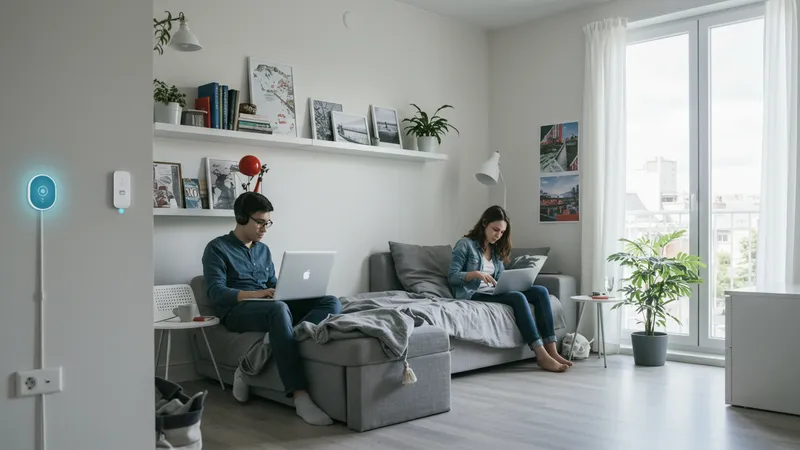
Subscription-based rental services are gaining popularity, facilitating seamless living without the long-term commitment of traditional renting. These services often include all utilities and are adaptable for individuals or families spending varying periods in different locations. This transformation is reshaping how people view tenancy but hold up—there are more implications yet to consider.
Interestingly, rental real estate is embracing technology to appeal to sustainable living advocates. Green technology rentals provide eco-friendly solutions, from energy-efficient appliances to waste reduction systems. These aspects not only cater to tenant values but also add value to properties, redefining what it means to ‘rent green’. But there’s another facet to it all.
The changing dynamic of rental experiences isn’t complete without considering smart home technology integration. Offering connected home systems with voice assistants and remote control features, ensures higher levels of comfort and security. This technological infusion elevates living standards, making properties more desirable. As trends continue to unfold, even more unexpected developments lie ahead.
Customer loyalty in the real estate sector has been redefined by innovative strategies and technology-driven engagement tactics. With consumers increasingly informed and discerning, companies are leveraging customer relationship management systems to enhance the buying journey. These approaches are crucial to holding client interest and ensuring return business. But there’s another significant angle.

Loyalty programs tailored for homebuyers and renters are gaining traction. These programs often provide membership benefits such as discounted rates on services or exclusive access to premium features. Successfully implemented, these programs not only enhance client relationships but also boost brand loyalty, a vital aspect in a competitive market. There’s another dimension to explore...
The role of personalized experiences in real estate is gaining prominence. Magnetic resonances occur when agents leverage customer data for uniquely tailored experiences. From virtual tours converted into personalized property offerings to custom-tailored pricing solutions, these personalization efforts are invaluable. But the advancements don’t stop at virtual integration...
Integration of omni-channel marketing strategies allows real estate professionals to meet clients where they are, from mobile engagement to virtual reality showrooms. This comprehensive approach ensures a seamless experience across all platforms, enhancing loyalty and capturing the evolving needs of modern buyers. As innovative trends continue, anticipate even more fascinating developments.
Innovative strategies are breaking down barriers to homeownership, opening doors for individuals who previously couldn't consider owning property. Cutting-edge financing options and technological advancements are democratizing access to homeownership, ensuring inclusivity for diverse populations. The landscape of buying homes is rapidly transforming. But what occurs next is pivotal.
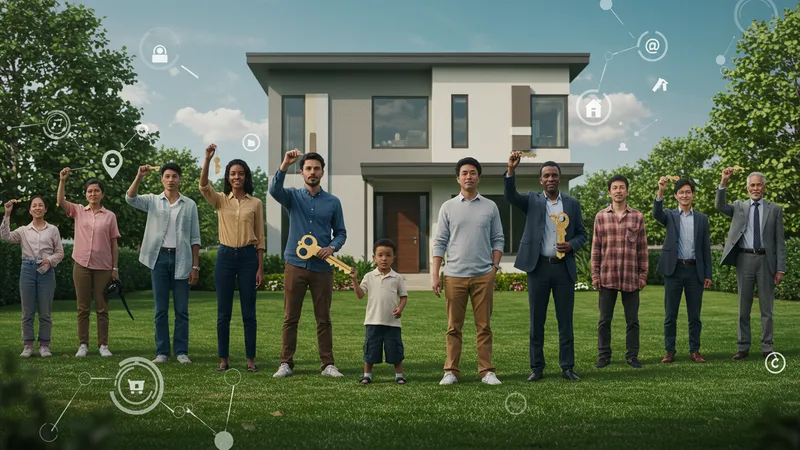
Alternative financing methods like shared ownership and digital mortgage brokers are facilitating access to real estate markets. By lowering upfront costs and simplifying process hurdles, these modalities are appealing to a new set of potential homeowners. The impact is felt across demographics, fundamentally altering ownership paradigms. And there’s another profound shift happening.
Technological advancements are unraveling the myth that home buying must be painfully slow. Platforms that streamline documentation, verification, and approval processes are accelerating the journey from interest to ownership. These digital solutions create user-centric processes, tailored to today’s fast-paced, efficiency-driven consumers. But the transformation doesn’t end here.
There is a growing movement to incorporate rental history into credit scoring models for assessing mortgage eligibility. This involves using reliable rental payment records, opening opportunities for many aspiring homeowners. Such breakthroughs in credit assessment introduce sweeping changes in the industry's approach. However, even more dramatic changes are on the horizon.
Urban spaces are being reimagined through the lens of prefabricated buildings, yielding sustainable environments that respond to complex urban challenges. These innovative designs provide novel solutions for high-density living, offering efficiency and sustainability in a single package. Yet, as explored, there’s more beneath the surface of this trend.
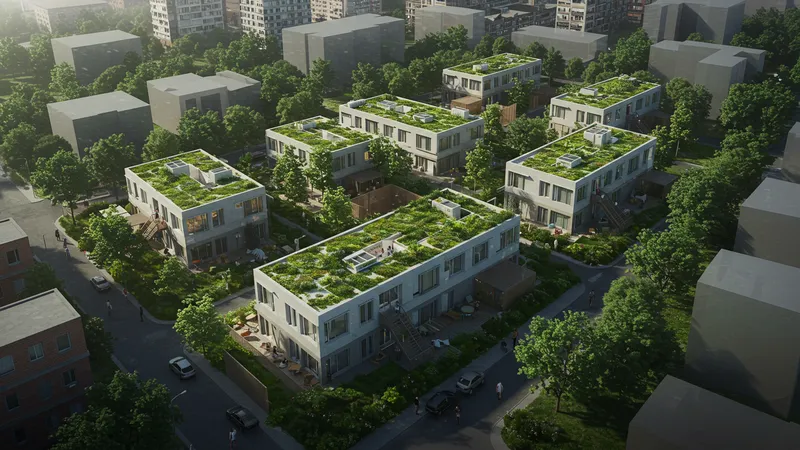
Prefabricated units enable rapid construction, meeting the demands of city populations in need of quick housing solutions. This rapid deployment can alleviate urban housing shortages, revitalizing areas that suffer from underdevelopment. The potential for significant positive urban transformation is just beginning to be understood. Yet surprises are still in store.
Layering eco-friendly materials and energy-efficient technologies within prefab structures ensures that urban spaces are not just responsive but also sustainable. This approach meets rising demands for green solutions, integrating seamlessly with city infrastructure for long-term viability. However, the scope of this impact continues to evolve beyond current knowledge.
Urban design policies are increasingly receptive to the possibilities offered by prefabricated buildings. These policies, combined with innovative construction practices, could usher in an era of sustainable urban living, influencing how future cities develop. Yet, as this paradigm progresses, more unexpected developments unfold amidst this promising journey.
The economics of modular construction presents tantalizing opportunities for substantial cost savings across architectural projects. Through efficient manufacturing processes and streamlined logistics, significant reductions in both labor and material costs are achieved. But this is just the starting point of an extensive cost-benefit analysis.
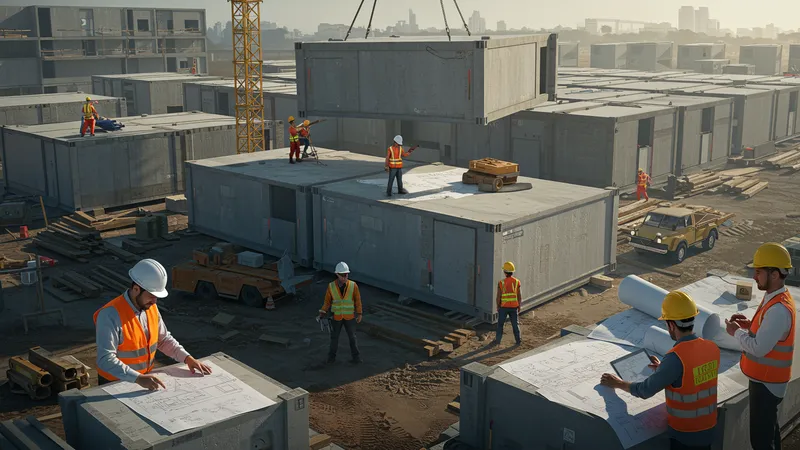
Customization within modular projects reveals further financial advantages. Standardized components allow economies of scale without sacrificing individuality tailored to unique project needs. Developers thus gain flexibility in design while still accessing cost-effective solutions—a win-win approach not often seen in traditional methods. Yet, new revelations keep emerging.
The key to maximizing cost savings lies in optimizing the entire lifecycle of the building—from initial construction to maintenance. The durable nature of prefabricated components reduces long-term operational costs, ensuring value preservation over time. Emphasizing lifecycle economics might reshape investment strategies entirely. Still, even this isn’t the final revelation.
Insurance premiums for modular structures are being reconsidered as underwriters recognize the resilient characteristics inherent in prefabricated components. Enhanced safety and durability may lead to reduced costs in insurance, offering another layer of financial incentive. This evolving understanding could catalyze further shifts across the building industry. But more surprises still await the industry.
In the cut-throat real estate industry, tech innovations are the cornerstone of gaining a competitive edge. The integration of AI and data-driven technologies into real estate processes significantly optimizes operational efficiencies. However, the extent of their impact is far greater than imagined.

AI-driven market analysis is delivering precise predictions and enabling better investment decisions. These processes uncover market trends and patterns previously unseen, offering developers and investors sharpened foresight into future opportunities. This predictive capacity stands to recalibrate competitive strategies but wait, there's more unfolding.
Blockchain technology in real estate transactions promises unparalleled transparency and security. By ensuring all steps in a purchase sequence are traceable and immutable, Blockchain elevates confidence among buyers and sellers. This watershed moment in transactional security offers a trusted backbone—yet this rising tide reveals even more depths.
Remote collaboration tools provide dynamic interaction between dispersed teams and clients, boosting productivity and engagement. These tech-driven communication platforms not only facilitate seamless project coordination but extend accessibility across global landscapes. As tech continues to reshape processes, unforeseen expansions still lie ahead.
Revolutionary paradigms are unfolding in real estate project management as builders embrace digital transformation. Technologies like Building Information Modeling (BIM) offer comprehensive project visualization and coordination before ground is broken. But the advantages stretch beyond planning efficiency.
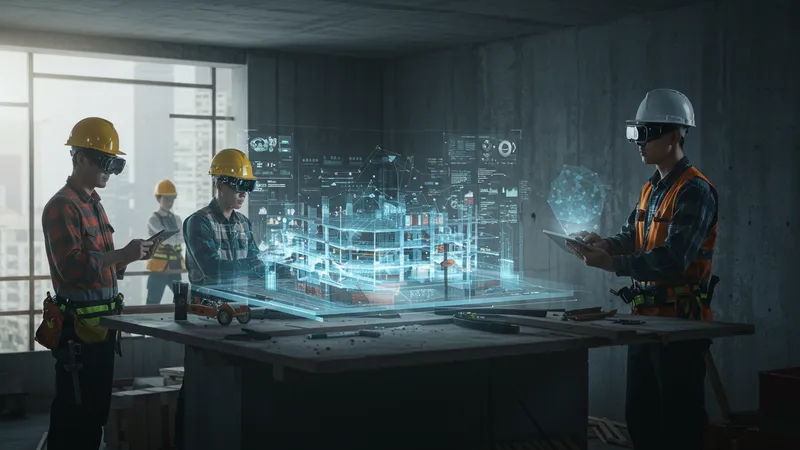
The adoption of agile project management in construction heralds significant shifts in practices and mindsets. By allowing flexibility and iterative development, builders swiftly adapt to changing requirements while minimizing risks. This approach is redefining conventional methodologies and unlocking new possibilities. Yet, an unexpected dimension still exists.
Collaboration between stakeholders is revolutionized through augmented reality. Real-time simulations present a transformative layer of pre-visualization, identifying potential conflicts and informing data-driven decisions. This capability enhances interactivity and precision, reshaping evaluation and delivery models. But the excitement doesn’t stop here.
Software platforms now enable builders to track progress and resource deployment with unprecedented accuracy. These project management tools offer insights and predictive analytics that optimize resource allocation, trimming costs and timelines. This foresight into future project evolution marks an indispensable advantage. However, even greater revelations are yet to come.
As global consciousness shifts towards sustainability, construction practices are undergoing a fundamental rethink. Strategies incorporate sustainable design principles and green building certifications that meet evolving environmental standards. But beyond compliance, these practices herald a new era in construction.
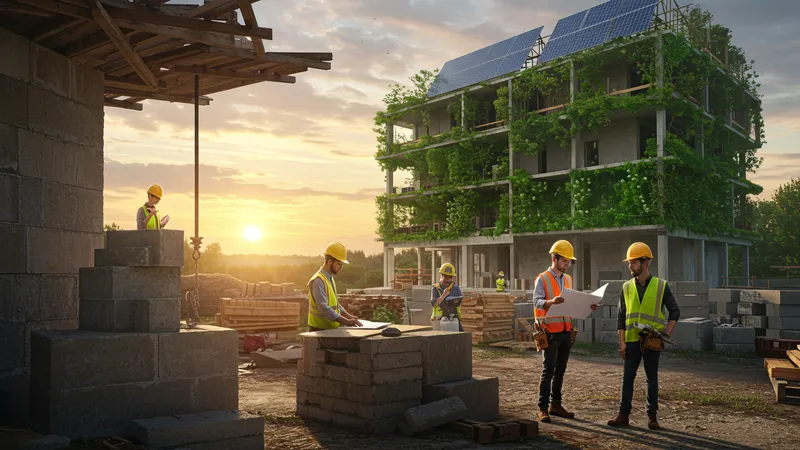
Emphasizing sustainable resource use, new building materials like hempcrete and cross-laminated timber are making waves. These materials not only reduce carbon footprints but also bring thermal efficiency and durability to projects. This focus refocuses sustainability from theory to practice. Yet, beneath the surface, more radical innovations are underway.
Water conservation and renewable energy integration are becoming standard in modern projects, marrying environmental responsibility with cost savings. Beyond initial spends, sustainable design translates into lower utility spending over a building’s lifecycle. These foundational investments redefine long-term returns but also invite more green innovations within the field.
Beyond individual projects, the wider industry is collaborating to foster sustainable development networks and frameworks. This industry-wide approach leverages collective expertise to innovate further and improve eco-responsibility across sectors. Transformative ripple effects are paving new frontiers, ensuring radically sustainable futures. Yet, further insights wait on the horizon.
As we reach the pinnacle of real estate advancements, embracing these innovative solutions invites a future filled with enhanced efficiency, sustainability, and adaptability. The amalgamation of technology, prefabrication, and intelligent systems redefines our perception and execution of property development. The potential is vast and multifaceted.
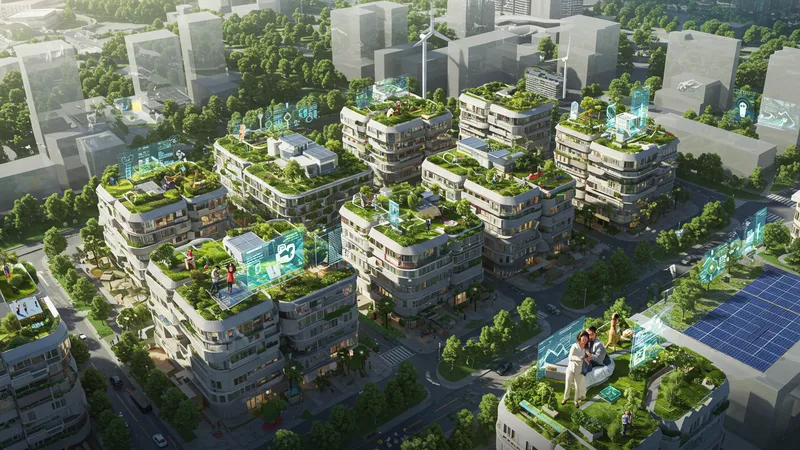
By delving into tech-centric methodologies, the real estate industry not only overcomes existing challenges but aligns itself with progressive ideals and consumer expectations. Empowering agents, developers, and consumers alike, this revolution heralds an inclusive, insightful landscape for all stakeholders involved. But the narrative doesn’t end here.
Encouraging a proactive mindset towards these changes unlocks creative possibilities that challenge traditional norms. By endorsing sustainable and tech-savvy solutions, the industry assures itself of future-proofing against unforeseen adversities. Thus, casting a dynamic vision that endures across generations.
The next chapter of real estate is not just departmental, but universal—expanding conversations and collaborations towards globally sustainable, technologically integrated societies. Joining this revolution offers endless potential. Embrace these future-savvy initiatives and share the transformative potential with your networks. Explore, innovate, and contribute to this evolving sphere.
The convergence of these elements marks more than a trend—it represents a seismic shift. It's not merely about what's built or bought but how we've recalibrated our understanding of structures, systems, and solutions. Pioneering this trend places us at the forefront of a bold, integrated real estate future.
Always aiming for smart growth and eco-conscious decisions, the wave of innovation has just begun to ripple through every facet of real estate. Are you poised to ride its crest? Your curiosity, action, and insights will shape tomorrow’s landscape. Join the movement towards an evolved real estate industry; share this knowledge and be an agent of change.